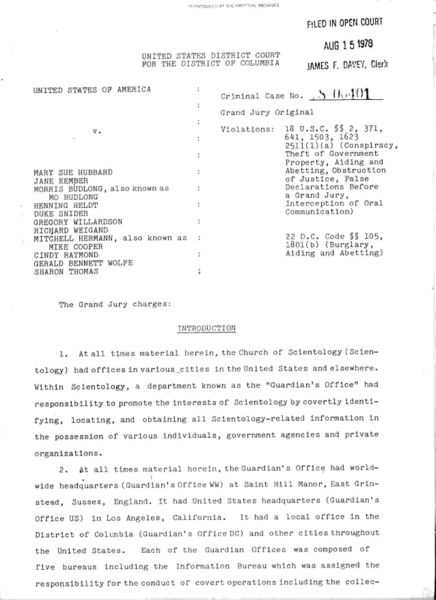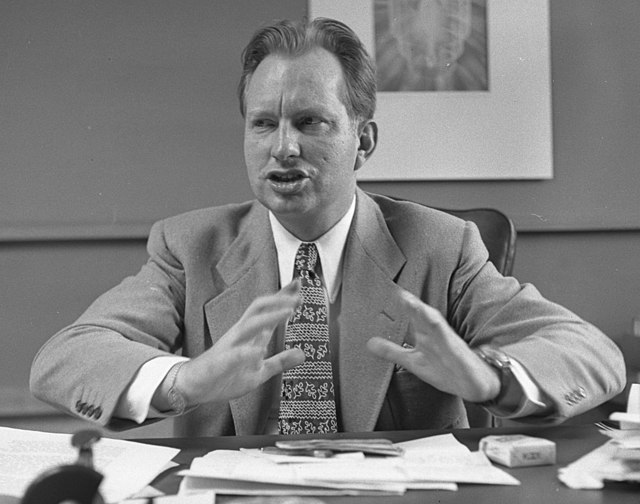The Church of Scientology has been involved in numerous court disputes across the world. In some cases, when the Church has initiated the dispute, questions have been raised as to its motives. The Church of Scientology says that its use of the legal system is necessary to protect its intellectual property and its right to freedom of religion. Critics say that most of the organization's legal claims are designed to harass those who criticize it and its manipulative business practices.
Grand jury charges from the case of United States of America v. Mary Sue Hubbard (DDC, 1979)
The Church of Scientology is a group of interconnected corporate entities and other organizations devoted to the practice, administration and dissemination of Scientology, which is variously defined as a cult, a business, or a new religious movement. The movement has been the subject of a number of controversies, and the Church of Scientology has been described by government inquiries, international parliamentary bodies, scholars, law lords, and numerous superior court judgements as both a dangerous cult and a manipulative profit-making business. In 1979, several executives of the organization were convicted and imprisoned for multiple offenses by a U.S. Federal Court. The Church of Scientology itself was convicted of fraud by a French court in 2009, a decision upheld by the supreme Court of Cassation in 2013. The German government classifies Scientology as an unconstitutional sect. In France, it has been classified as a dangerous cult. In some countries, it has attained legal recognition as a religion.

Scientology building in Los Angeles, California
L. Ron Hubbard, founder of the Church of Scientology
Print and distribution center, California
Author Services building





